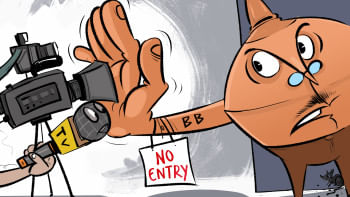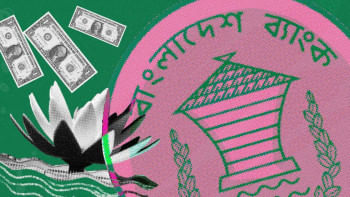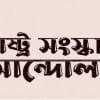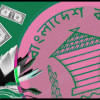Urgent bank reforms are crucial

Since the fall of the Awami League regime, there have been several chaotic incidents in the banking sector—from the resignation of Bangladesh Bank (BB) governor and other top officials to the conflicts between rival groups at the Motijheel branch of Bangladesh Islami Bank yesterday—sending out an alarming signal. These incidents are but an indication about how quickly a sector, long lying on the edge of the precipice, can unravel when push comes to shove.
A recent report by Prothom Alo sheds light on what led to the woeful state of this sector. It talks about the BB's questionable steps taken during the erstwhile government to keep several failing banks afloat by providing liquidity support without collateral; alleged unethical connections of the BB governor and deputy governors with top loan defaulters; and the change of ownership forced on several banks including the Islami Bank, creating an environment of mistrust. Moreover, the BB's choice of lending foreign currency loans from the reserve to various influential businesses through the export development fund, without proper evaluation, also resulted in many classified loans. Just think: 20 local businesses currently owe BB about $70 million taken out of the foreign currency reserve!
The default loan amount reported by BB—Tk 1.822 trillion—is also under scrutiny. Experts estimate that the actual figure would be close to four trillion, considering rescheduled and bad/written-off loans and those currently under legal dispute. Meanwhile, depositors of the failing banks, many of which were forced to change ownership, cannot withdraw their savings. Yet, the owners of the banks are taking out loans under different names.
While some of these irregularities were mentioned in the BB's own reports, several central bank officials allege that many such activities have remained out of BB's and Bangladesh Financial Intelligence Unit's regulatory radar. This raises serious questions about the responsibility and ethics of top officials of not just the central bank but also the governing bodies of several private and public commercial banks. There is no doubt that political appointments in the banking sector, incorrect or manipulative accounting practices, nepotism, and lack of transparency in the lending process brought the sector to its current state.
It is, therefore, imperative that the interim government urgently launches an investigation to find out the actual amount of default loans, and identify and bring to book the big defaulters along with officials who aided these questionable borrowings. Also, the government must prioritise depositors' interests and prevent any further withdrawal of money by the unholy nexus of unscrupulous owners, borrowers, and defaulters that are bleeding the sector dry.


 For all latest news, follow The Daily Star's Google News channel.
For all latest news, follow The Daily Star's Google News channel. 











Comments